Location: GUIs >
Linux / Unix >
The AT&T PC 7300 / Unix PC
<< Previous Page | 1 | 2 | Next Page >>
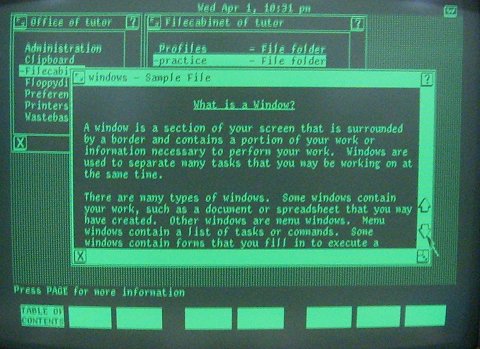
This practice file shows the arrows used for scrolling..
Also notice that the softkeys have changed indicating that the first
function key will now activate a table of contents.

While it is not visible in any of the other photos, a small "working"
message with an AT&T logo appears as programs are loading.
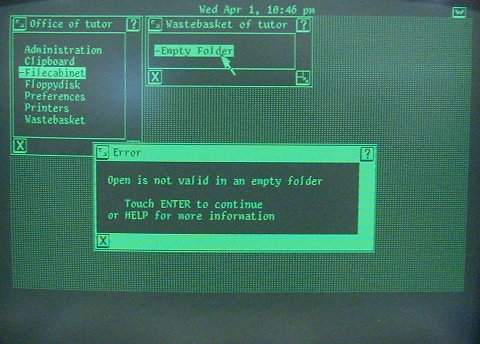
Other kinds of error and confirmation messages also appear in a standard
window frame.
Notice that the content is only text. There are no graphical buttons
to click on.
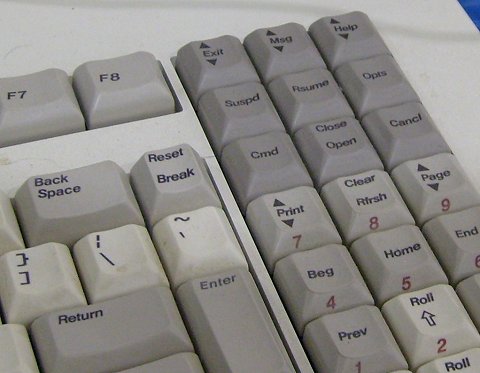
Such messages may tell you to "touch" help, cancel, or similar. These
refer to special keys that actually exist on the keyboard. Surprisingly,
they don't even assign softkeys for these functions.
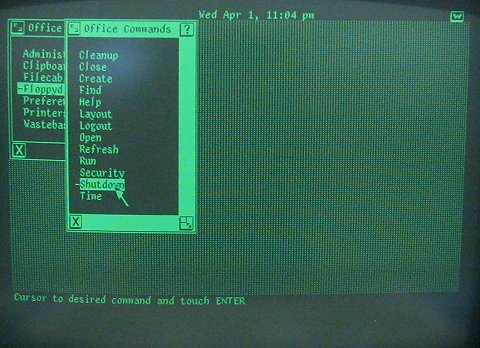
Middle clicking on an Office window brings up a list of "Office Commands".
This includes various file and folder functions.
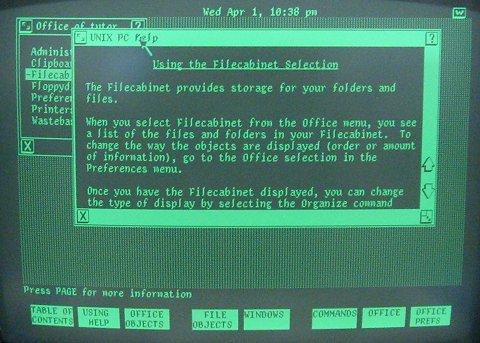
The AT&T Unix PC has a built in help system. Pressing the "?" symbol
in the upper right brings up a related help topic.
Notice that the soft keys at the bottom of the screen have again changed.
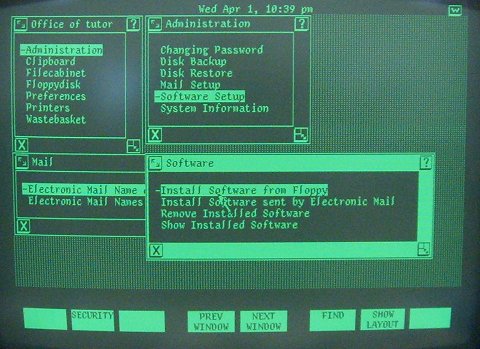
Browsing through the Office menu features, one that stands out is a
software installation facility.
There wasn't any application software installed on this machine, but
some notable titles were produced for it. Once such title was Microsoft
Word.
Most of these default shell windows appear text-based, but applications
can draw graphical images.
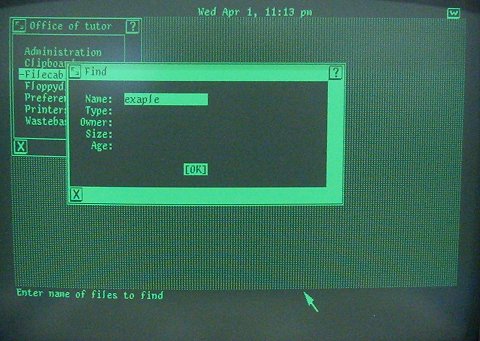
Another example dialog: the find command. Again, there was not much
to find on this machine.
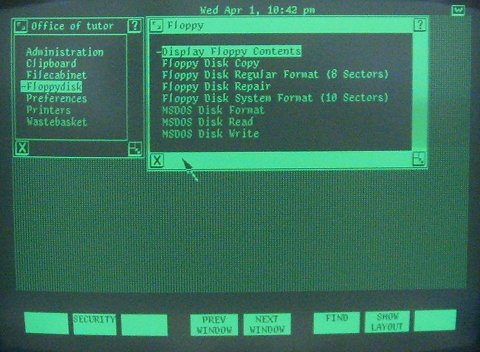
The AT&T 7300 Unix PC could read and write DOS formatted disks
using its included 5.25" floppy drive.
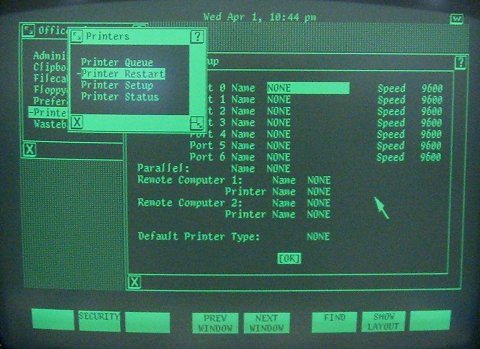
The Office Menu also provides a somewhat graphical interface for printer
management.
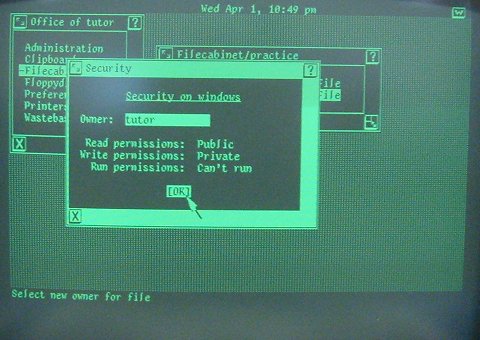
This is Unix, so files have Unix style security permissions.
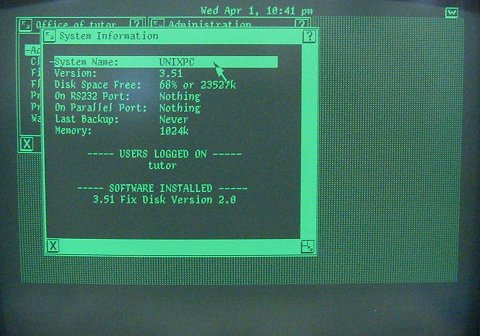
The about screen shows that it is running OS version 3.51 with an entire
megabyte of RAM.
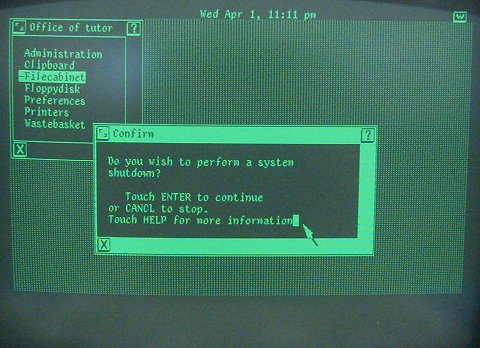
Finally shutting down the AT&T 7300 Unix PC.
<< Previous Page | 1 | 2 | Next Page >>
| 











